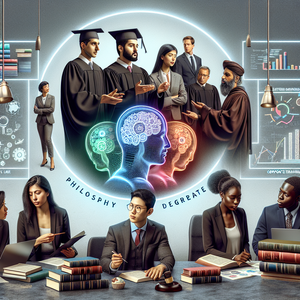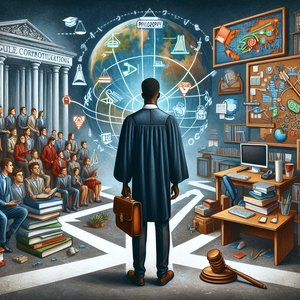The Future of Work: Lessons from Henry Ford's Career Philosophy

Henry Ford recognized early on that adaptability was crucial to success. The introduction of the assembly line was not merely a new way to manufacture cars; it was a response to the changing demands of consumers and the need for efficiency. In today’s rapidly changing work environment—characterized by technological advancements and shifting market needs—adaptability is more critical than ever. Companies that foster a culture of flexibility and openness to change are more likely to succeed. For instance, organizations that embraced remote work during the COVID-19 pandemic not only survived but thrived, demonstrating that adaptability can be a competitive advantage.
Innovation as a Core Value
Ford’s career was defined by his relentless pursuit of innovation. He believed in continuously improving processes and products to meet the needs of consumers. This mindset is essential for today’s workforce, where innovation drives differentiation in a crowded market. Companies like Tesla and Google exemplify this principle, continually pushing boundaries to redefine their respective industries. Encouraging a culture of innovation within organizations fosters creativity and empowers employees to contribute ideas that can lead to breakthroughs. For example, tech giants often hold hackathons, inviting employees from all levels to collaborate on novel solutions, reinforcing the idea that great ideas can come from anywhere.
Employee Engagement and Value Creation
Ford understood the importance of valuing employees, setting a precedent for worker treatment that was revolutionary for his time. By offering higher wages and better working conditions, he cultivated loyalty and productivity among his workforce. In today's context, employee engagement goes beyond mere compensation; it encompasses a holistic approach to well-being, professional development, and recognition. Organizations that prioritize employee experience—through initiatives like flexible work options, mental health support, and career growth opportunities—tend to see higher levels of engagement and retention. A Gallup study shows that engaged employees are 21% more productive, highlighting Ford’s legacy of valuing workers as a pathway to success.
Supporting Examples or Evidence
The principles derived from Ford’s career philosophy resonate clearly in modern examples. Tech companies like Zoom and Slack have thrived by adapting to remote work trends, fostering innovation through inclusive collaboration tools, and emphasizing employee well-being. Furthermore, studies from the Harvard Business Review indicate that companies with high employee engagement outperform their competitors by 147% in earnings per share, echoing Ford's belief in the importance of a motivated workforce.
Henry Ford's career philosophy offers timeless lessons that can guide us through the complexities of the modern workplace. By embracing adaptability, fostering a culture of innovation, and prioritizing employee engagement, organizations can navigate the uncertainties of the future of work. As we reflect on Ford’s legacy, it becomes clear that the principles he championed remain pivotal in creating a dynamic, resilient, and successful workforce. By learning from the past, we can better prepare for the future, ensuring that both businesses and individuals continue to thrive in an ever-changing world.
Innovation Manager
Google, Amazon, Tesla
Job Description
Lead cross-functional teams to develop and implement innovative strategies that drive product and service enhancements.
Analyze market trends and consumer feedback to guide the ideation process and prioritize projects.
Collaborate with stakeholders to create a culture of innovation within the organization.
Required Skills
Strong analytical and creative thinking skills
Experience in project management
Proficiency in design thinking methodologies
Employee Experience Specialist
Salesforce, Microsoft, Deloitte
Job Description
Design and implement employee engagement programs that enhance workplace culture and increase retention rates.
Conduct surveys and focus groups to gather employee feedback and provide actionable insights to leadership.
Develop and facilitate training sessions aimed at professional development and well-being.
Required Skills
Strong communication and interpersonal skills
Familiarity with HR analytics
Experience in organizational development
Change Management Consultant
McKinsey & Company, Accenture, PwC
Job Description
Assess organizational readiness for change and develop strategies to minimize resistance and ensure smooth transitions.
Provide training and resources to employees to help them adapt to new processes and technologies.
Measure and report on the effectiveness of change initiatives to leadership.
Required Skills
Expertise in change management frameworks (e.g., ADKAR, Kotter)
Excellent communication skills
Experience with stakeholder engagement
Remote Work Coordinator
Zoom, Shopify, GitHub
Job Description
Develop and manage policies that support effective remote work practices across the organization.
Provide training and support to staff on best practices for remote collaboration and productivity tools.
Monitor and analyze remote work effectiveness and employee satisfaction to inform future strategies.
Required Skills
Strong organizational and analytical skills
Proficiency in digital collaboration tools (e.g., Zoom, Slack, Microsoft Teams)
Experience in remote team management
Manufacturing Process Engineer
Ford, General Motors, Boeing
Job Description
Design and optimize manufacturing processes to enhance efficiency, quality, and safety on production lines.
Conduct root cause analysis to address production issues and implement improvements.
Collaborate with cross-disciplinary teams to prototype and test new manufacturing techniques and technologies.
Required Skills
Proficiency in CAD software
Strong problem-solving skills
Knowledge of lean manufacturing principles


